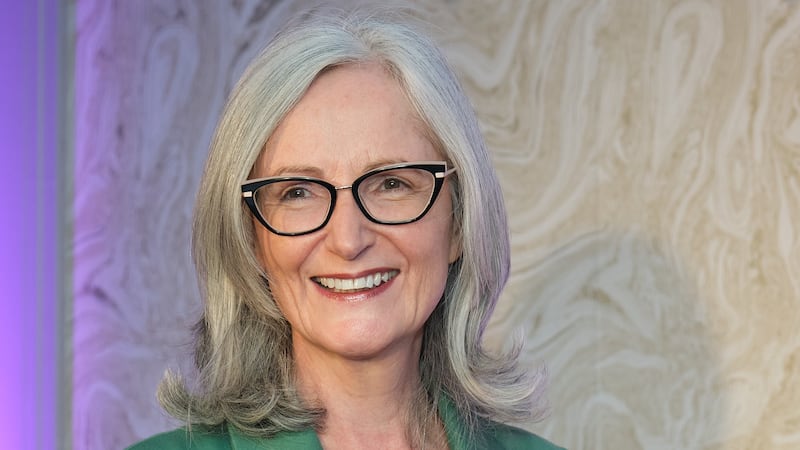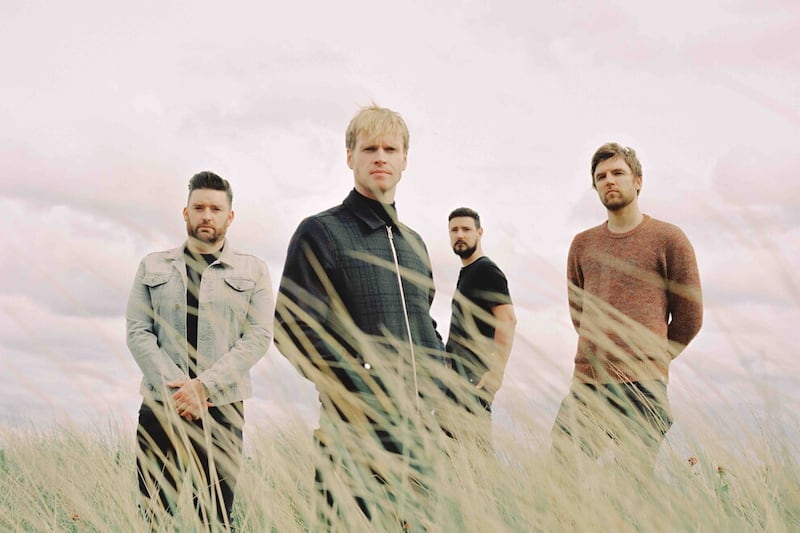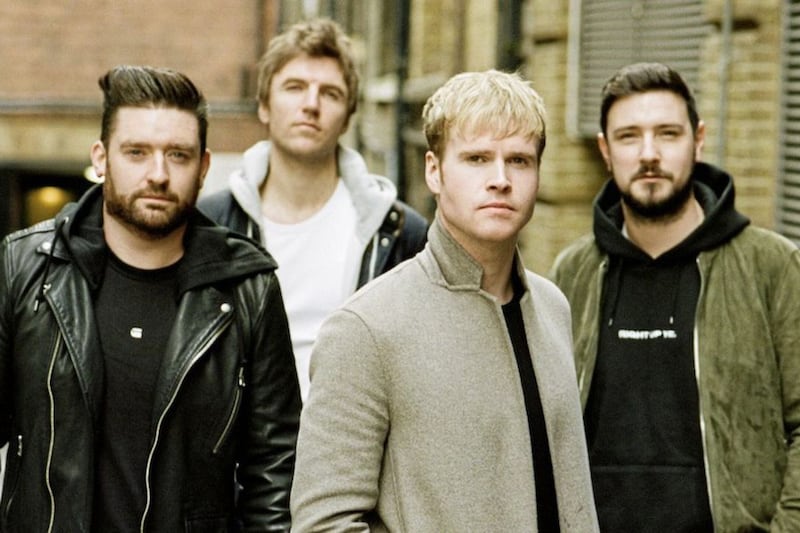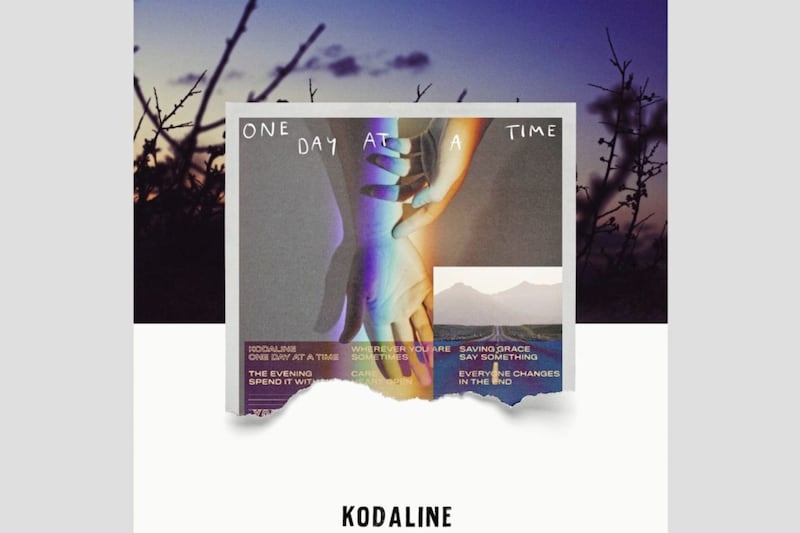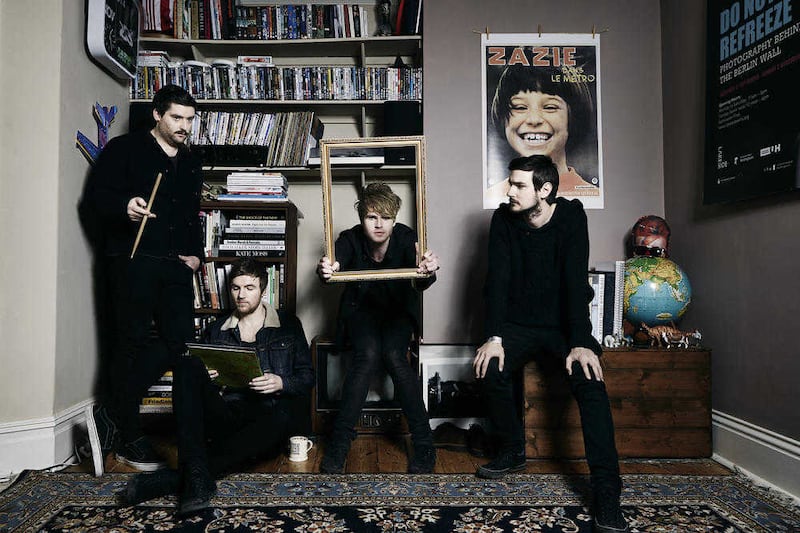AS lead singer and songwriter of hugely successful Irish indie rock band Kodaline, Steve Garrigan plays to thousands of fans worldwide - his business is being in the spotlight.
But behind the glamour and onstage confidence, the frontman has revealed that he has spent years battling with anxiety and depression.
In his newly published and deeply personal autobiography, High Hopes: Making Music, Losing My Way, Learning To Live, Garrigan takes readers on a journey from his childhood growing up in Dublin, to the highs of rock star success touring and playing stadiums and the lows of crippling panic attacks which threatened to derail his career.
Garrigan hopes the book will be able to offer some insight into the struggles that have impacted his life - as well as the lives of many others around the world - and offer hope for the future.
"It's something I never thought I'd have the courage to do, but I'm glad I did. I had social anxiety for years which is quite strange for a frontman in a band," says the 33-year-old.
"For years I stayed quiet about it because of the stigma that surrounds mental health.
"You can feel so alone when struggling with mental health, but I hope sharing my stories makes others realise they are not alone and there's nothing to be ashamed of."
He is keen to stress that mental health issues "don't discriminate" and can affect people from all walks of life and they shouldn't be ignored.
"There are a lot of people out there that are still bottling up their problems, particularly Irish men. You are told to 'man up', 'push through it' or 'suck it up'. But I believe there is strength in vulnerability and talking about your problems."
A "nervous" child, whose shyness only dissolved in front of a microphone, Garrigan expressed himself through music, forming a band with his schoolmates.
Before changing their name to Kodaline, they were known as 21 Demands, and first came to attention in 2006, when they were runners-up on the RTÉ talent show You're a Star.
But after initial success, the band members went on to concentrate on their studies or other careers and Garrigan took up his parents' offer to move him to a private school to repeat his Leaving Cert.
"Looking back I was a complete loner. I spent that whole year trying to concentrate and stay focused while beating myself up, constantly telling myself that I was a failure and trying to ignore all these feelings of increasing discomfort around people."
It was a period in which his anxiety came to the fore and resulted in a panic attack, whilst at a café in Dublin's Temple Bar, aged 20.
Garrigan admits his lack of awareness about anxiety and panic attacks only compounded his reaction.
"I didn't know what was going on, I didn't even know what anxiety was, I didn't know what a panic attack was, I just thought I was dying.
"Your heart races, your hands shake, your breathing goes which is really scary because it feels like your lungs aren't getting enough air, you can get pins and needles all over your body, blurred vision, you can't concentrate on anything."
After a doctor explained a panic attack was 'stress in his head', his symptoms eventually lessened. However, Garrigan continued to live in silence, internalising shame and trying to deal the anxiety himself.
But as the panic attacks continued he finally reached breaking point and opened up to a close friend.
"I foolishly thought that if I ignored it, it would go away and get better. When I spoke to a friend, that was such a relief and the start of me getting a handle on it."
In hindsight Garrigan believes that the panic attack actually helped him become the person he was today and for Kodaline to become the success they are today.
"The one thing I shouldn't have done was ignore the anxiety and try to run away from it. But by doing that it forced me to try and escape. I did that through music.
"If I didn't have that panic attack when I was 20 I could've gone on to finish college, instead of chasing my passion, and my life would be very different.
"I was repeating my Leaving Cert to please my parents, but ultimately I think it's far more important to actually do what is right for you and chase that passion you have."
One of the songs he penned during this difficult period was High Hopes, which reached number one in the Irish singles chart and was the lead single from their 2013 debut studio album In a Perfect World.
"That song lifted a weight off my shoulders - that's what music does for me. Without song writing I'd be an anxious mess.
"Sometimes it's very difficult to do but I believe positive thinking is one of the most powerful things in the world and that's basically what the song is about."
Another low for Garrigan came in 2017 when his fellow bandmates had to take to the stage in Barcelona to cancel their gig as he lay backstage in panic, struggling to breathe.
"My anxiety had never gotten in the way of me performing before. I realised it is a serious problem and it wasn't going away," he recalls.
Thankfully, through medication, therapy, a change of lifestyle and the support of his band members Vinny, Jay and Mark, Garrigan has learned to deal with his anxiety.
As well as cognitive behavioural therapy, regular yoga, HITT workouts and meditation, "being aware of negative self-talk" has also helped him.
"Now I can notice if I find myself falling into a slump or a dark place. And the first thing I'll do is book another therapy session, workout, and ease off the pressure by working on songwriting.
"I'll acknowledge it and offer myself words of encouragement, instead of allowing myself to spiral downwards. And if I ever find myself slipping into a deeper depression, or anxiety, I would not hesitate to go back on medication because it did help me."
Garrigan and his girlfriend, broadcaster and author Diana Bunici are ambassadors for Walk In My Shoes, a charity for mental health awareness and are keen to get across the message that "no one suffering from mental health should feel ashamed to ask for help and support".
He continues: "There is a wide range of mental illnesses, but at the end of the day everyone is human. My message is don't judge, and to have compassion."
Whilst trying to "live in the moment" and not obsess or worry about the future, Garrigan is looking forward to Kodaline's forthcoming acoustic tour this autumn, including Belfast's Waterfront Hall on November 18 and Derry's Millennium Forum the following evening.
"Any Kodaline song starts off with the guitar and then we will sing harmonies around it, before building up the band around it. With these shows it will be just piano and guitar. We've never done a stripped down show like it before, but it's really exciting."
:: High Hopes: Making Music, Losing My Way, Learning To Live by Steve Garrigan is published by Hachette Books Ireland and is out now.
For support and advice on mental health issues visit Aware-ni.org and Aware.ie


